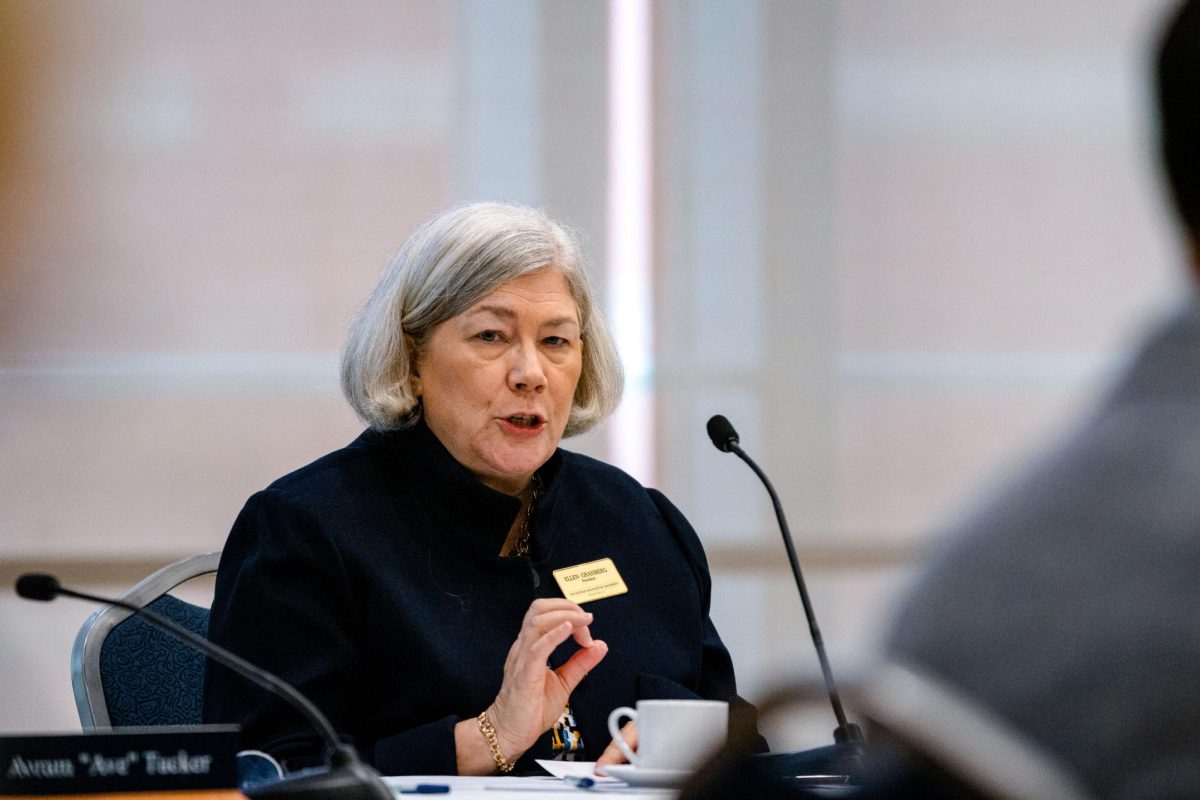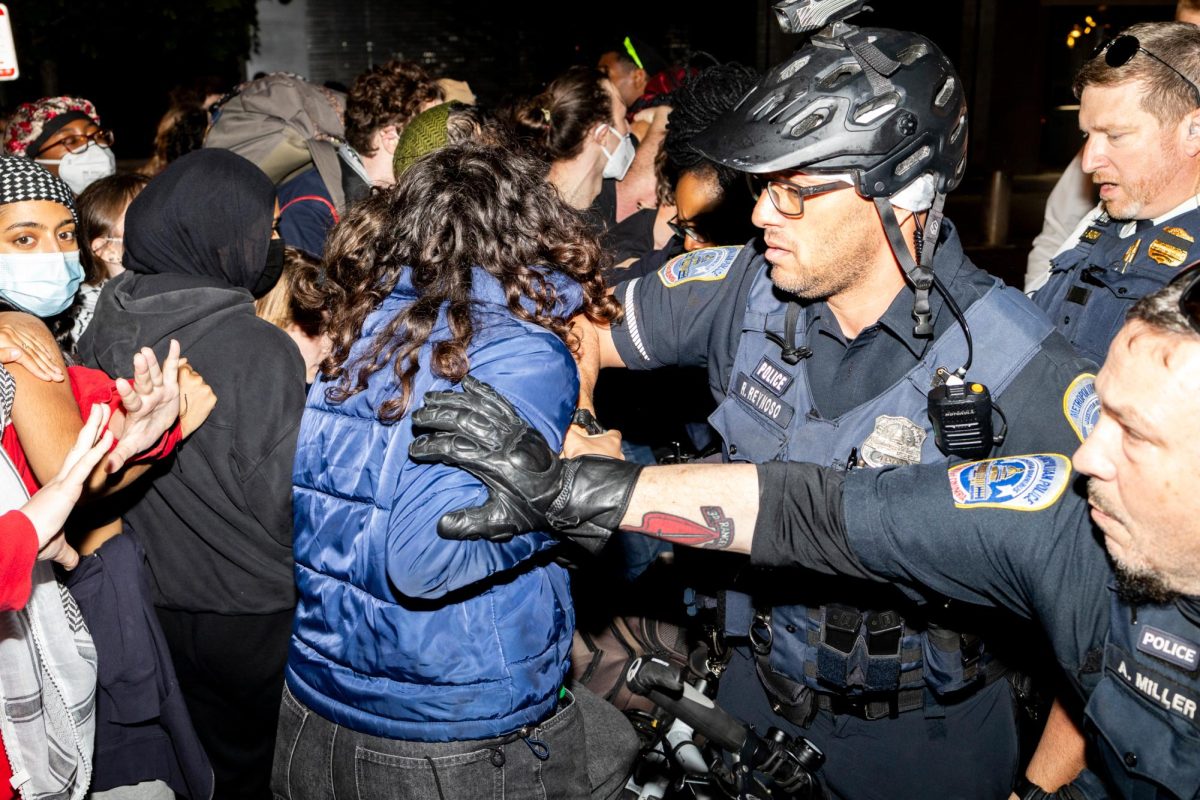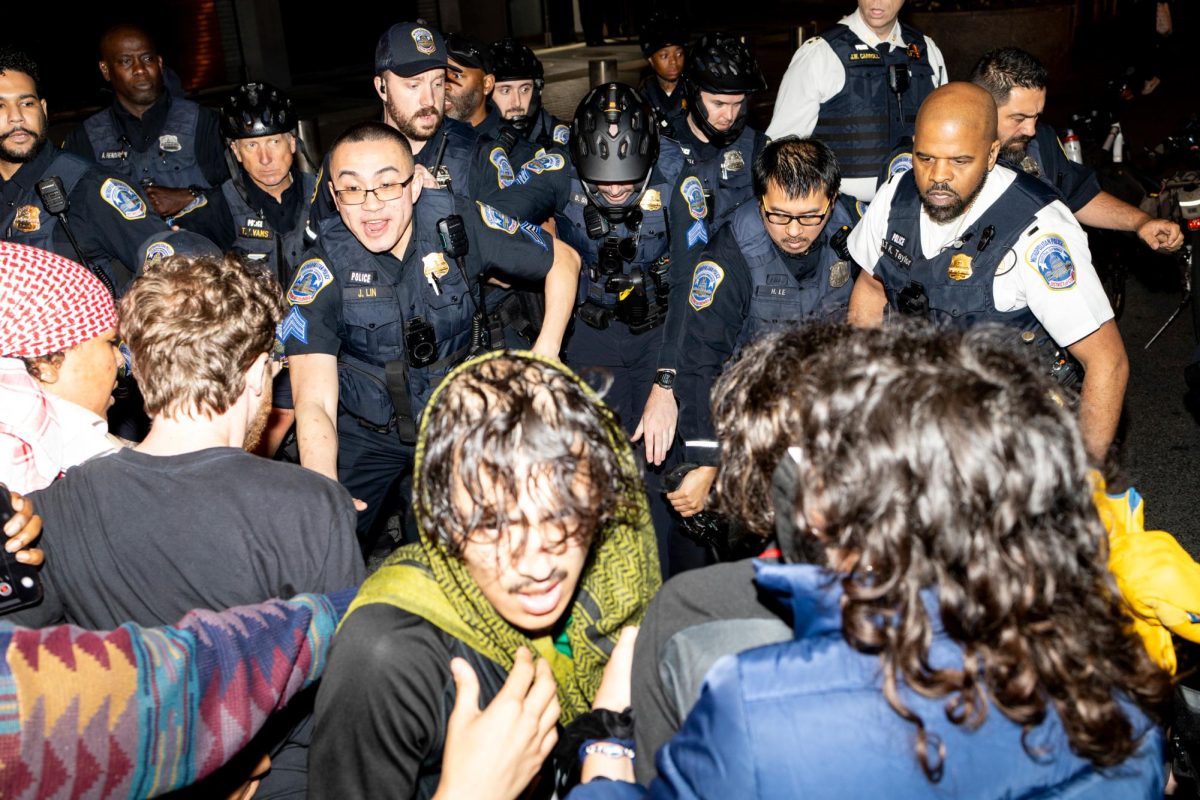University President Ellen Granberg said she aims to free up resources for more effective use of GW’s budget at a Staff Council meeting last month after members expressed concerns over their compensation.
Granberg said hiring resources are “tight” at her second-ever meeting with the inaugural staff governing body in December and pledged to help maximize the size of the merit pay pool for staff to improve employee retention during her tenure. In response to staff concerns submitted online prior to the meeting about the high cost of living in the District, Granberg said the pay-for-performance model in which high performers are paid high salaries is standard in higher education institutions but that officials regularly conduct market reviews to “anchor” GW’s salaries in the District.
Officials must first use merit-pay pools to pay for utilities and the cost of benefits, later distributing the rest of the pool to staff according to their performance, she said.
“The idea here is that you do want the opportunity to be able to differentiate in performance and to reward people who do exceptionally strong work in a given year,” Granberg said at the meeting. “If you go with a cost of living increase, you have no ability to moderate that and to be able to provide additional awards to folks who have an exceptionally high performance.”
Caroline Kemp, a representative for the Division for Student Affairs and a nurse practitioner at the Student Health Center, said the pay-for-performance model is “broken” because her supervisors have said they cannot afford additional merit pay after paying for unit needs.
Granberg said while inflation can reduce the amount of available merit pay for staff, managers in Kemp’s unit may need additional support in providing performance feedback.
“Performance management is something that takes a while for leaders to get good at,” Granberg said.
She said conversations about future University strategic planning will begin in the spring with “working groups” of University community members and broader community input. She said she does not believe in strategic plans that focus on GW’s current issues and that the next strategic plan will pinpoint three to five investments that officials should make to prepare for GW’s future.
She said there is a “mismatch” between the amount of staff GW employs and the amount of work that each employee has on their plate, but the University doesn’t have the resources to hire more staff or reallocate resources. She added that Chief Financial Officer Bruno Fernandes is working on a new budget model for more efficient use of GW’s money.
“The first step for us is going to be the work on the budget model,” Granberg said. “Because right now, we do not have the resources to staff up to past levels of staff in terms of the institution broadly.”
Shawn Bayrd, a representative for the School of Nursing and College of Professional Studies, said the privatization of Granberg’s investiture ceremony last month due to concerns about local activism relating to the war in the Gaza Strip sent a message to the community that officials resort to “fear and exclusion practices” in the wake of local and international conflict. He said Granberg must denounce acts of violence and terrorism and maintain GW’s position as a leader in diplomacy.
“I certainly hear and validate the concerns from faculty and staff about on campus safety, but it is the job of institutional leadership to mitigate concerns not to simply remove community participation from important community events, regardless of domestic or local protests,” Bayrd said at the meeting.
Granberg said she did not want to make the “heartbreaking decision” to make her investiture ceremony virtual for most guests in November, but she was concerned for campus safety. She added that the GW Police Department’s Safety Advisory Committee of students, faculty and staff will launch in the spring semester and gather feedback from the GW community on campus safety.
“It was very distressing to have to feel that I had to do it,” Granberg said “But I took the recommendations of the safety professionals who would advise that it was necessary.”
Staff Council committee chairs also provided updates on the work of their respective groups.
Staff Council Vice President Kim Fulmer said staff who are not part of the council are able to join a committee, who conduct “very meaningful” work. Staff can join a committee through the listserv on the Staff Council website.
Amy-Leah Joaquim, the Service Committee chair, said the committee has worked to make the Honey W. Nashman Center’s MLK Day of Service accessible for staff participation by working with the event’s planners to allow minors to register for the event so staff can bring their children.





